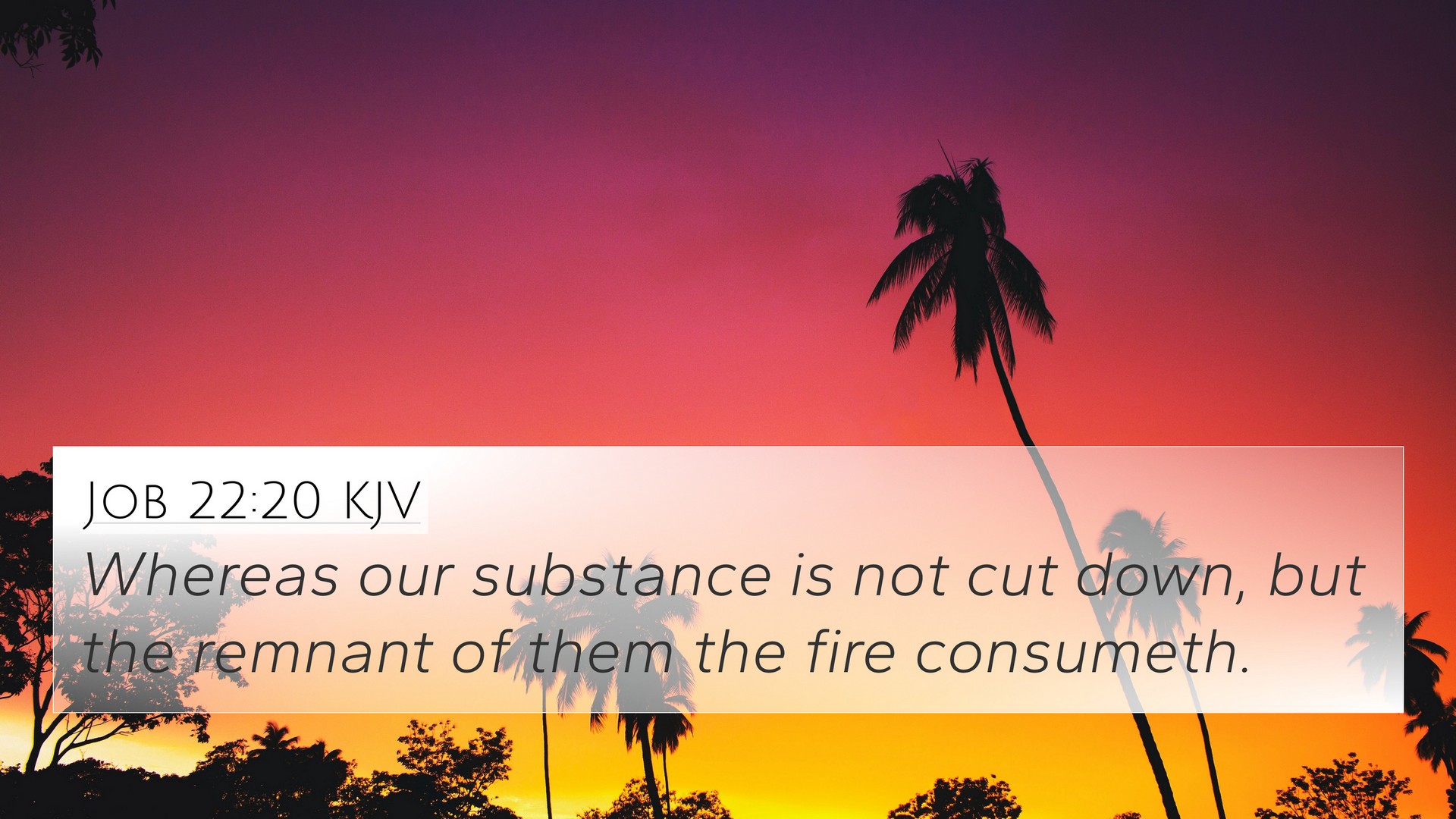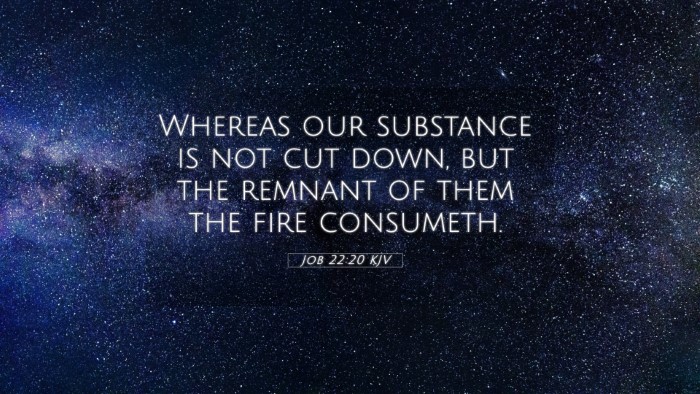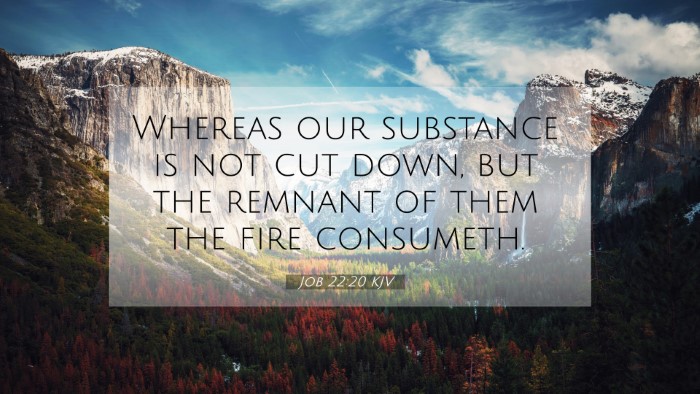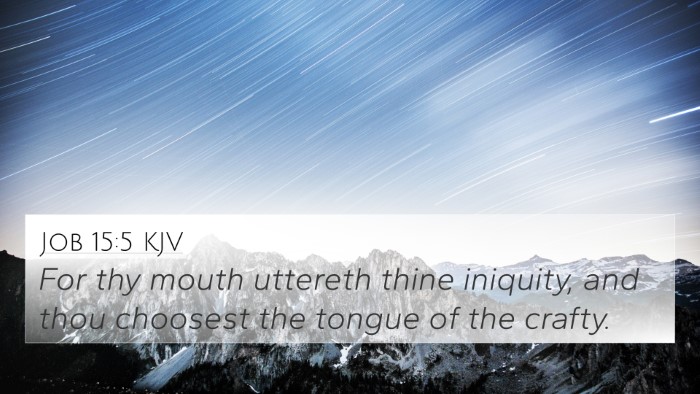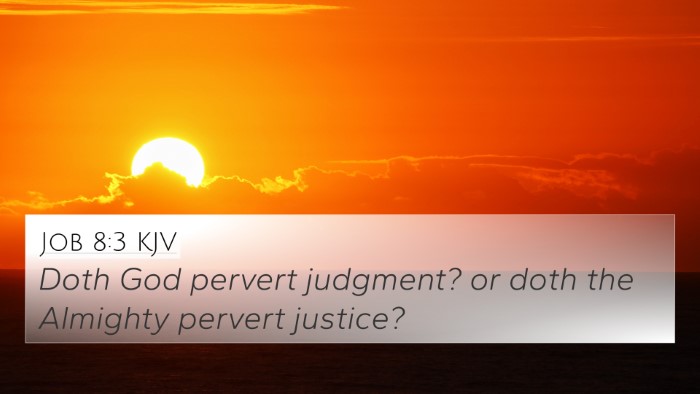Old Testament
Genesis Exodus Leviticus Numbers Deuteronomy Joshua Judges Ruth 1 Samuel 2 Samuel 1 Kings 2 Kings 1 Chronicles 2 Chronicles Ezra Nehemiah Esther Job Psalms Proverbs Ecclesiastes Song of Solomon Isaiah Jeremiah Lamentations Ezekiel Daniel Hosea Joel Amos Obadiah Jonah Micah Nahum Habakkuk Zephaniah Haggai Zechariah MalachiJob 22:20 Similar Verses
Job 22:20 Cross References
Whereas our substance is not cut down, but the remnant of them the fire consumeth.
Uncover the Rich Themes and Topics of This Bible Verse
Listed below are the Bible themes associated with Job 22:20. We invite you to explore each theme to gain deeper insights into the Scriptures.
Job 22:20 Cross Reference Verses
This section features a detailed cross-reference designed to enrich your understanding of the Scriptures. Below, you will find carefully selected verses that echo the themes and teachings related to Job 22:20 KJV. Click on any image to explore detailed analyses of related Bible verses and uncover deeper theological insights.
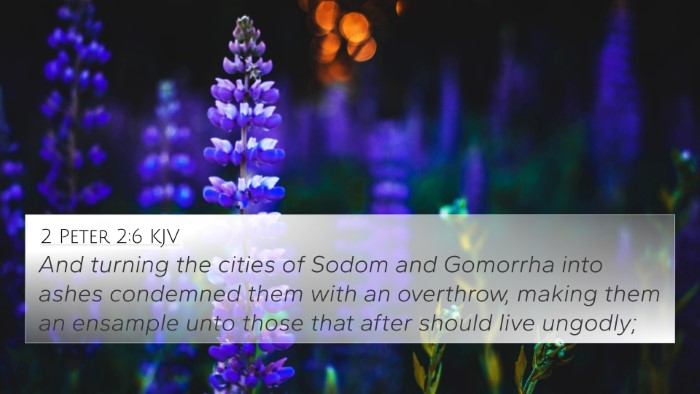
2 Peter 2:6 (KJV) »
And turning the cities of Sodom and Gomorrha into ashes condemned them with an overthrow, making them an ensample unto those that after should live ungodly;
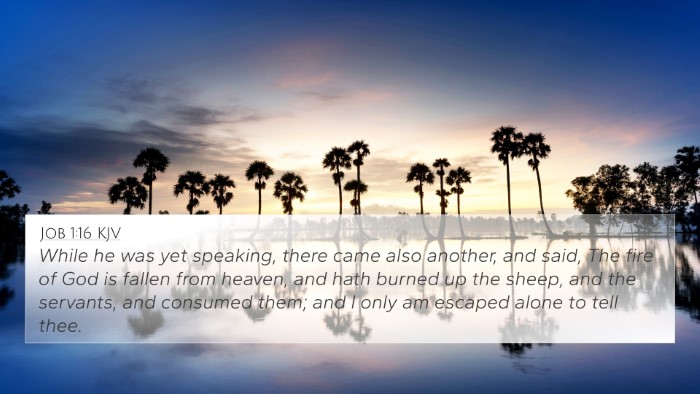
Job 1:16 (KJV) »
While he was yet speaking, there came also another, and said, The fire of God is fallen from heaven, and hath burned up the sheep, and the servants, and consumed them; and I only am escaped alone to tell thee.
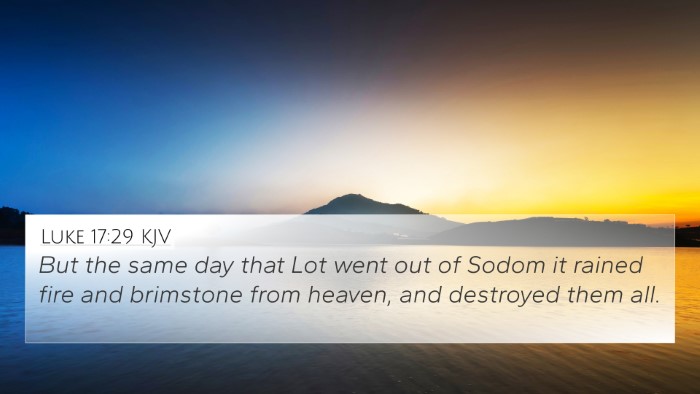
Luke 17:29 (KJV) »
But the same day that Lot went out of Sodom it rained fire and brimstone from heaven, and destroyed them all.

Luke 13:1 (KJV) »
There were present at that season some that told him of the Galilaeans, whose blood Pilate had mingled with their sacrifices.
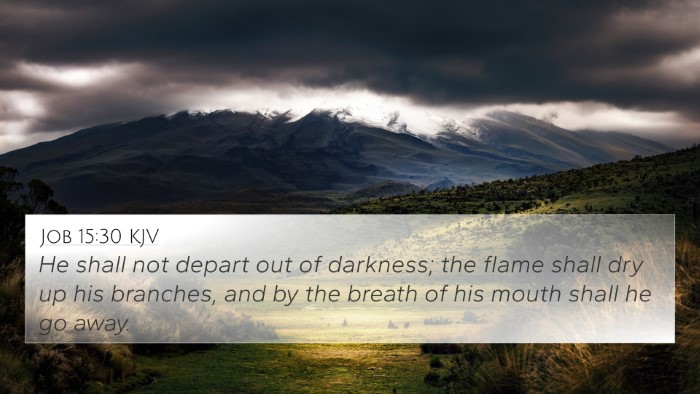
Job 15:30 (KJV) »
He shall not depart out of darkness; the flame shall dry up his branches, and by the breath of his mouth shall he go away.

Job 20:26 (KJV) »
All darkness shall be hid in his secret places: a fire not blown shall consume him; it shall go ill with him that is left in his tabernacle.
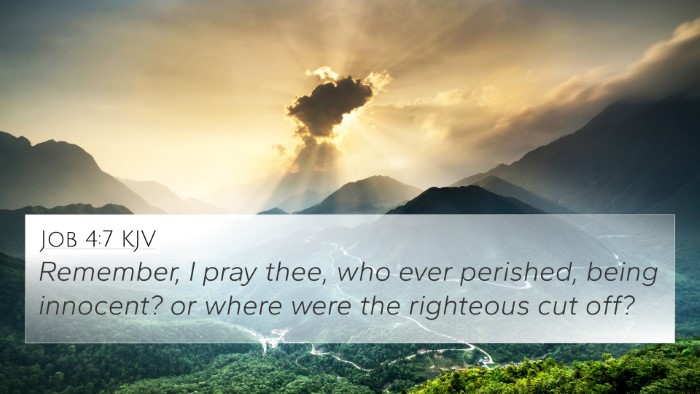
Job 4:7 (KJV) »
Remember, I pray thee, who ever perished, being innocent? or where were the righteous cut off?
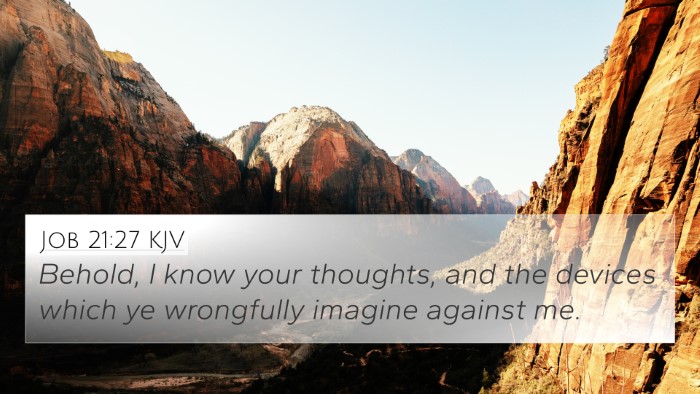
Job 21:27 (KJV) »
Behold, I know your thoughts, and the devices which ye wrongfully imagine against me.

Job 20:18 (KJV) »
That which he laboured for shall he restore, and shall not swallow it down: according to his substance shall the restitution be, and he shall not rejoice therein.

Genesis 19:24 (KJV) »
Then the LORD rained upon Sodom and upon Gomorrah brimstone and fire from the LORD out of heaven;
Job 22:20 Verse Analysis and Similar Verses
Understanding Job 22:20
Job 22:20 states: “They say, ‘We have embalmed ourselves with great wickedness, and our conscience weighed us down; we prayed for the poor and were prayed for by kings.’” This verse occurs in the context of Eliphaz the Temanite's speech, where he reproaches Job for what he perceives as sinfulness and lack of piety. The verse asks the profound questions concerning human integrity and the divine judgment that follows.
Insights from Public Domain Commentaries
This verse asks the reader to reflect on the connections between our actions and the perceptions of others, emphasizing the weight of our conscience in determining the moral quality of our lives.
Matthew Henry’s Commentary
- Divine Justice: Henry points out that this verse reveals God’s justice prevailing over human deceit. It serves to remind us that despite our claims to righteousness, God ultimately knows the truth.
- Misguided Friends: Eliphaz represents those who misinterpret affliction as a sign of divine disfavor, contributing to Job’s suffering beyond his understanding of God's character.
Albert Barnes’s Notes
- Retributive Justice: Barnes interprets this as a reflection on the principle of cause and effect in God’s moral government, showing that sin has consequences.
- Pride and Humility: Emphasizes the importance of humility before God, as well as the dangers of prideful claims of self-righteousness that may mislead friends and adversaries alike.
Adam Clarke’s Commentary
- Self-Deception: Clarke examines how humans can deceive themselves into believing they are righteous when they are not, aligning this with historical examples of perceived righteousness leading to downfall.
- Conscience and Judgment: Clarke notes the importance of the conscience, as it is what judges our actions and reveals the state of our hearts to ourselves and to God.
Application and Reflection
This verse compels readers to consider their own moral standing and encourages introspective examination of one's conscience against the backdrop of divine justice. It invites us to engage with the broader narrative of suffering and righteousness as depicted in the Scriptures and should prompt a heart open to repentance and truth.
Cross-References
Job 22:20 connects with several other Bible verses that delve into themes of divine judgment, human integrity, and conscience:
- Job 4:7-8: “Consider now: Who, being innocent, has ever perished? Where were the upright ever destroyed?” - Reflects on the nature of retribution.
- Proverbs 11:21: “Be assured, an evil person will not go unpunished, but the offspring of the righteous will be delivered.” - The assurance of God's justice.
- Psalm 37:28: “For the Lord loves the just and will not forsake his faithful ones.” - Affirms God's care for the righteous.
- Galatians 6:7: “Do not be deceived: God cannot be mocked. A man reaps what he sows.” - A clear message of accountability for one’s actions.
- James 4:10: “Humble yourselves before the Lord, and he will lift you up.” - The importance of humility over self-righteousness.
- Romans 2:6: “God ‘will repay each person according to what they have done.’” - Echoes the theme of divine judgment based on actions.
- 1 Corinthians 4:5: “Therefore judge nothing before the appointed time; wait until the Lord comes.” - A caution against premature judgment, affirming divine timing in retribution.
Keywords and Themes
Thematic explorations of this verse can provide insight into:
- Bible verse cross-references: Understanding how verses interconnect.
- Comparative Bible verse analysis: Analyzing similar themes across texts.
- Cross-referencing Biblical texts: Tools to connect insights across different scriptures.
- Identifying connections between Old and New Testament: Frequently, the themes of divine justice and the integrity of righteous living are mirrored in both testaments.
Conclusion
Job 22:20 stands as a poignant reminder of the nature of truth and moral integrity in the face of suffering. Through the reflections and elaborations from various commentaries, we gain deeper insights into the relational dynamics between human actions, conscience, and divine perception. Engaging in cross-referencing Biblical texts helps to enrich our understanding and navigation through the complexities of faith and morality found throughout Scripture.
